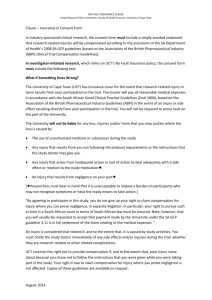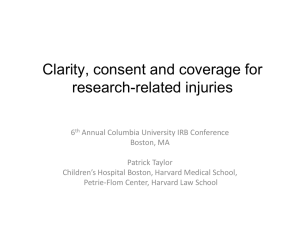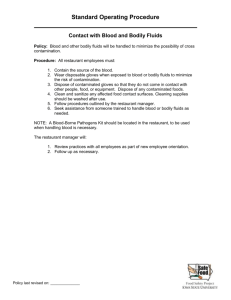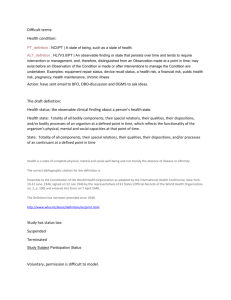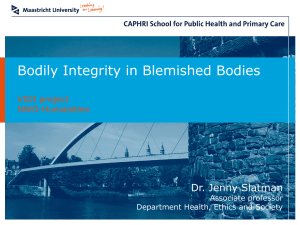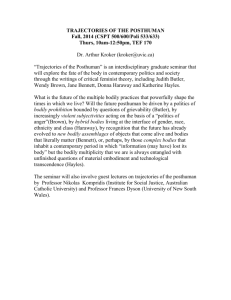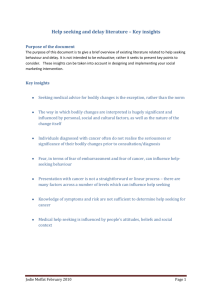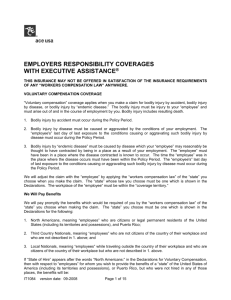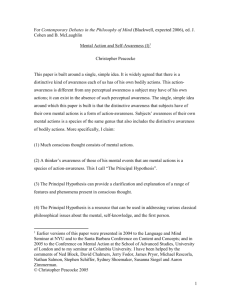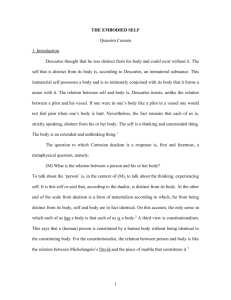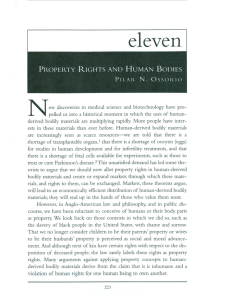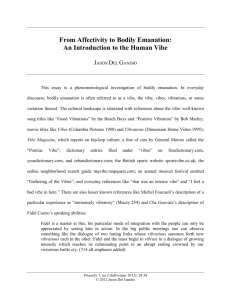SOP for Insurance against Research Related Bodily Injury
advertisement
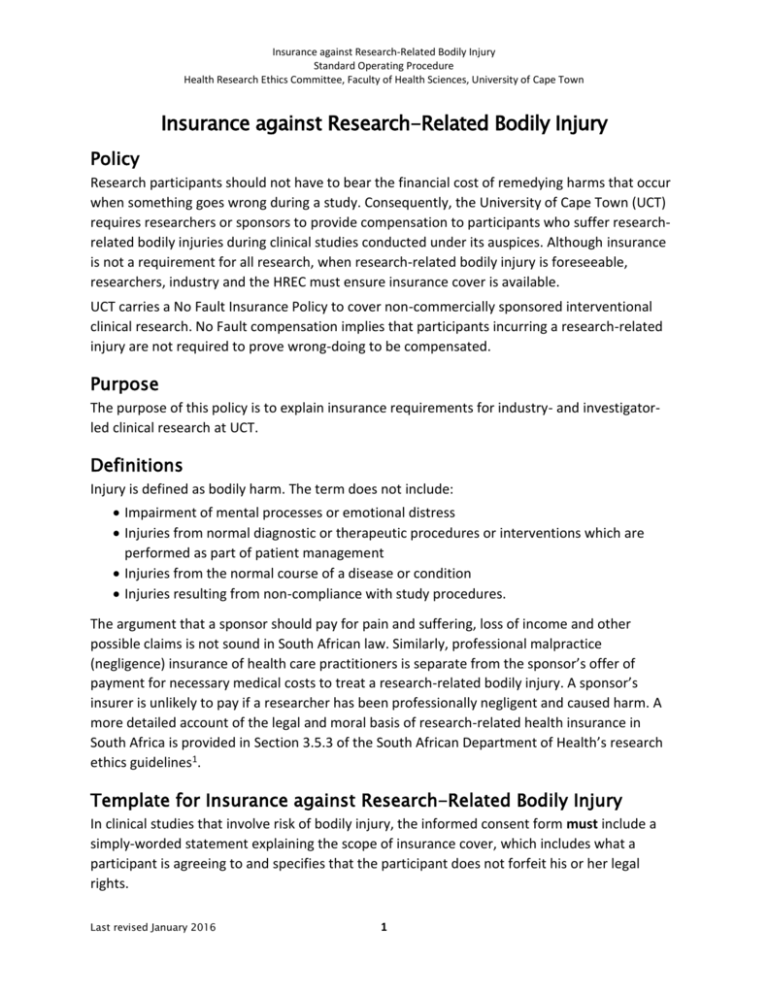
Insurance against Research-Related Bodily Injury Standard Operating Procedure Health Research Ethics Committee, Faculty of Health Sciences, University of Cape Town Insurance against Research-Related Bodily Injury Policy Research participants should not have to bear the financial cost of remedying harms that occur when something goes wrong during a study. Consequently, the University of Cape Town (UCT) requires researchers or sponsors to provide compensation to participants who suffer researchrelated bodily injuries during clinical studies conducted under its auspices. Although insurance is not a requirement for all research, when research-related bodily injury is foreseeable, researchers, industry and the HREC must ensure insurance cover is available. UCT carries a No Fault Insurance Policy to cover non-commercially sponsored interventional clinical research. No Fault compensation implies that participants incurring a research-related injury are not required to prove wrong-doing to be compensated. Purpose The purpose of this policy is to explain insurance requirements for industry- and investigatorled clinical research at UCT. Definitions Injury is defined as bodily harm. The term does not include: Impairment of mental processes or emotional distress Injuries from normal diagnostic or therapeutic procedures or interventions which are performed as part of patient management Injuries from the normal course of a disease or condition Injuries resulting from non-compliance with study procedures. The argument that a sponsor should pay for pain and suffering, loss of income and other possible claims is not sound in South African law. Similarly, professional malpractice (negligence) insurance of health care practitioners is separate from the sponsor’s offer of payment for necessary medical costs to treat a research-related bodily injury. A sponsor’s insurer is unlikely to pay if a researcher has been professionally negligent and caused harm. A more detailed account of the legal and moral basis of research-related health insurance in South Africa is provided in Section 3.5.3 of the South African Department of Health’s research ethics guidelines1. Template for Insurance against Research-Related Bodily Injury In clinical studies that involve risk of bodily injury, the informed consent form must include a simply-worded statement explaining the scope of insurance cover, which includes what a participant is agreeing to and specifies that the participant does not forfeit his or her legal rights. Last revised January 2016 1 Insurance against Research-Related Bodily Injury Standard Operating Procedure Health Research Ethics Committee, Faculty of Health Sciences, University of Cape Town The template below is based on the SA GCP Guidelines 2006, the MCC Clinical Trials Compensation Guidelines and Venter v Roche Products (Pty) Ltd et al (12285/08) [2013] WCHC 7 May 2013 and on appeal (A11/2014) 22 October 2014. Notes for researchers (i.e. not for inclusion in the consent form): i. Research study insurance does not substitute malpractice insurance. ii. ABPI guidelines on compensation apply only to unlicensed substances used in Phase II and III clinical trials. Therefore, reference to ABPI compensation should not be a standard paragraph in all consent documents. iii. Participants may not recognise symptoms of side effects, or have ready means to take action. ‘What happens if I get hurt taking part in this study?’ (or an equivalent heading) This research study is covered by an insurance policy taken out by the University of Cape Town (or sponsor’s name) if you suffer a bodily injury because you are taking part in the study. The insurer will pay for all reasonable medical costs required to treat your bodily injury, according to the SA Good Clinical Practice Guidelines 2006 (or latest version), which are based on the Association of the British Pharmaceutical Industry Guidelines. The insurer will pay without you having to prove that the research was responsible for your bodily injury. You may ask the study doctor for a copy of these guidelines. The insurer will not pay for harm if, during the study, you: Use medicines or other substances that are not allowed Do not follow the study doctor’s instructions Do not tell the study doctor that you have a bad side effect from the study medicine Do not take reasonable care of yourself and your study medicine If you are harmed and the insurer pays for the necessary medical costs, usually you will be asked to accept that insurance payment as full settlement of the claim for medical costs. However, accepting this offer of insurance cover does not mean you give up your right to make a separate claim for other losses based on negligence, in a South African court. It is important to follow the study doctor’s instructions and to report straightaway if you have a side effect from the study medicine. References 1.Department of Health. Ethics in Health Research: Principles, Processes and Structures. Second Edition. Department of Health, Republic of South Africa, Pretoria, 2015. Last revised January 2016 2
